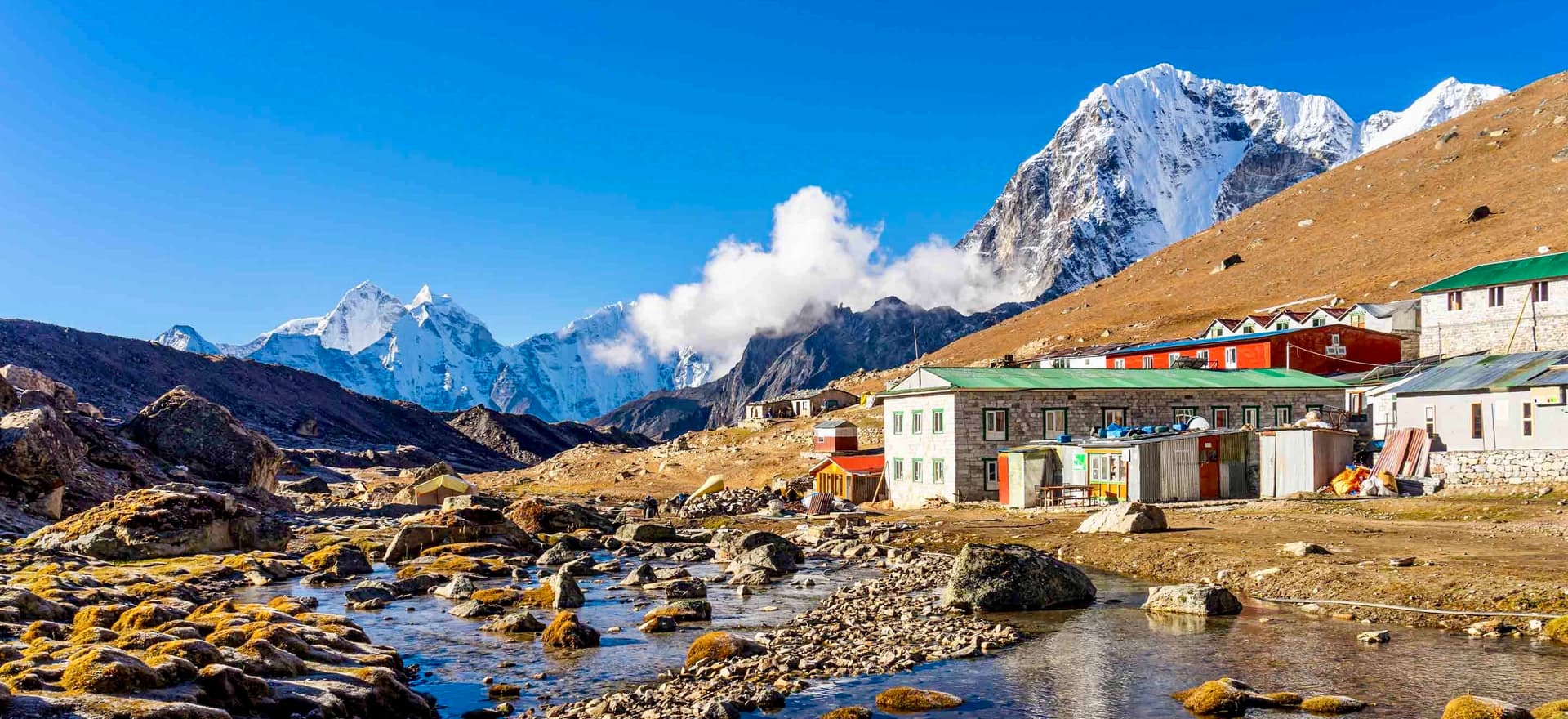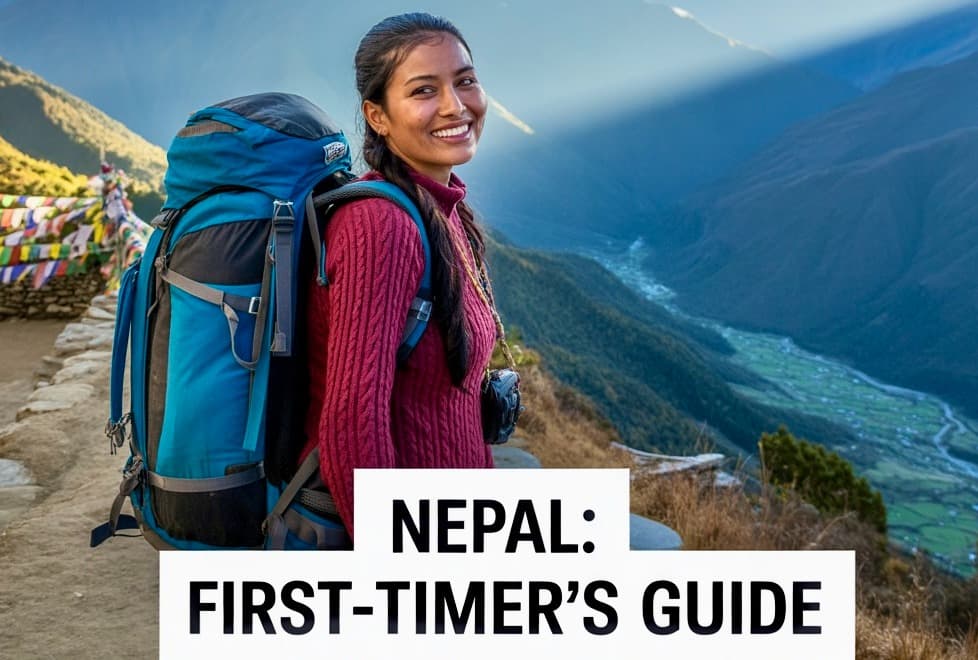Embarking on the adventure of a lifetime requires meticulous planning and thoughtful consideration, especially when it comes to the iconic Everest Base Camp trek. For aspiring trekkers gearing up for this Himalayan odyssey, it's essential to equip themselves with the knowledge and preparation needed to conquer the challenges that lie ahead. At Luxury Holidays Nepal Pvt. Ltd., we understand the significance of a well-planned trek, and we're here to guide you through the critical aspects that will ensure a safe, enjoyable, and unforgettable journey to the base of the world's highest peak. From tackling altitude sickness to crafting the perfect itinerary, our expertise and commitment to your well-being will be your trusted companions on this extraordinary expedition. Explore with confidence as we unravel the key factors and intricacies in this guide on Things To Know Before Planning For Everest Base Camp Trek.
We take pride in being the premier company for those seeking comprehensive insights into Things To Know Before Planning For Everest Base Camp Trek. As the leader in the travel industry, we distinguish ourselves through a commitment to excellence, unparalleled expertise, and a deep understanding of the intricacies involved in preparing for this iconic trek. Our dedicated team, comprising seasoned professionals and experienced guides, is here to ensure that your journey to Everest Base Camp is not only memorable but also safe and well-prepared. At Luxury Holidays Nepal, we stand as a beacon of trust, reliability, and personalized service, offering you the best resources and guidance to make informed decisions before embarking on this extraordinary adventure. From providing expert advice on altitude sickness prevention to tailoring the perfect itinerary, we go above and beyond to make your Everest Base Camp trek a seamless and enriching experience. Choose Luxury Holidays Nepal – your gateway to a world of unparalleled adventure and unparalleled service.
Comprehensive Everest Base Camp Trek Preparation
Embarking on the Everest Base Camp Trek is a thrilling adventure, but success lies in meticulous preparation. A comprehensive preparation is the cornerstone of a safe and enjoyable trek. At Luxury Holidays Nepal, we prioritize your readiness for the challenges that the Himalayan trail presents. Here's a detailed guide to ensure your Everest Base Camp trek preparation is thorough and effective:
-
Physical Fitness Focus: Prioritize physical fitness with a well-rounded exercise routine. Incorporate cardiovascular exercises, strength training, and hiking practices to build the stamina required for the trek.
-
Altitude Acclimatization: Acclimatization is crucial in high-altitude treks. Plan shorter treks at higher altitudes before attempting Everest Base Camp to allow your body to adjust gradually.
-
Altitude Sickness Awareness: Familiarize yourself with the symptoms of altitude sickness, such as headaches, nausea, and dizziness. Our guides at Luxury Holidays Nepal are trained to monitor your health and provide immediate assistance if needed.
-
Proactive Health Check-ups: Consider undergoing a thorough health check-up before the trek. This ensures that pre-existing medical conditions are identified and managed appropriately during the journey.
-
Nutrition and Hydration: Maintain a balanced diet and stay well-hydrated throughout the trek. Proper nutrition is essential for energy, and adequate hydration helps in altitude acclimatization.
-
Mental Preparation: Prepare mentally for the challenges of the trek. The Everest Base Camp trail is physically demanding, and mental resilience plays a significant role in overcoming obstacles.
-
Gear and Equipment Check: Ensure you have the right gear and equipment. From sturdy trekking boots to a reliable backpack, having the correct gear enhances comfort and safety during the trek.
-
Reviewing Itinerary: Familiarize yourself with the trek itinerary. A well-planned schedule allows for proper acclimatization and ensures a gradual ascent, reducing the risk of altitude-related issues.
-
Weather Understanding: Gain insights into the weather conditions along the trail. The Himalayan weather can be unpredictable, and knowing what to expect helps you pack appropriately and plan your trek strategically.
-
Emergency Preparedness: Be prepared for emergencies. Carry a basic first aid kit and familiarize yourself with its contents. Luxury Holidays Nepal provides emergency contacts and support, ensuring a swift response if needed.
-
Communication Devices: Bring communication devices for connectivity. While some parts of the trail may have mobile network coverage, having a satellite phone or two-way radio is advisable for remote areas.
-
Documentation and Permits: Ensure all necessary documentation is in order. Luxury Holidays Nepal assists you in obtaining permits, such as the Sagarmatha National Park Permit and Khumbu Pasang Lhamu Rural Municipality Entry Permit.
-
Cultural Sensitivity: Understand and respect the local culture. Our guides provide insights into the customs of the region, fostering positive interactions with the local communities.
-
Environmental Considerations: Embrace responsible trekking practices. Minimize waste, follow Leave No Trace principles, and support initiatives that contribute to the preservation of the Everest region's environment.
With this comprehensive Everest Base Camp Trek preparation guide, Luxury Holidays Nepal ensures that you are well-equipped and mentally prepared for the journey of a lifetime. Your safety and enjoyment are our top priorities, and we look forward to guiding you through the breathtaking landscapes of the Himalayas.
Altitude Sickness Prevention Strategies
Embarking on the Everest Base Camp trek is an exhilarating endeavor, but the threat of altitude sickness looms as trekkers ascend to higher elevations. At Luxury Holidays Nepal Pvt. Ltd., we prioritize your well-being by providing comprehensive strategies to prevent altitude sickness and ensure a safe and enjoyable trek. Here's a guide to altitude sickness prevention that encompasses key considerations:
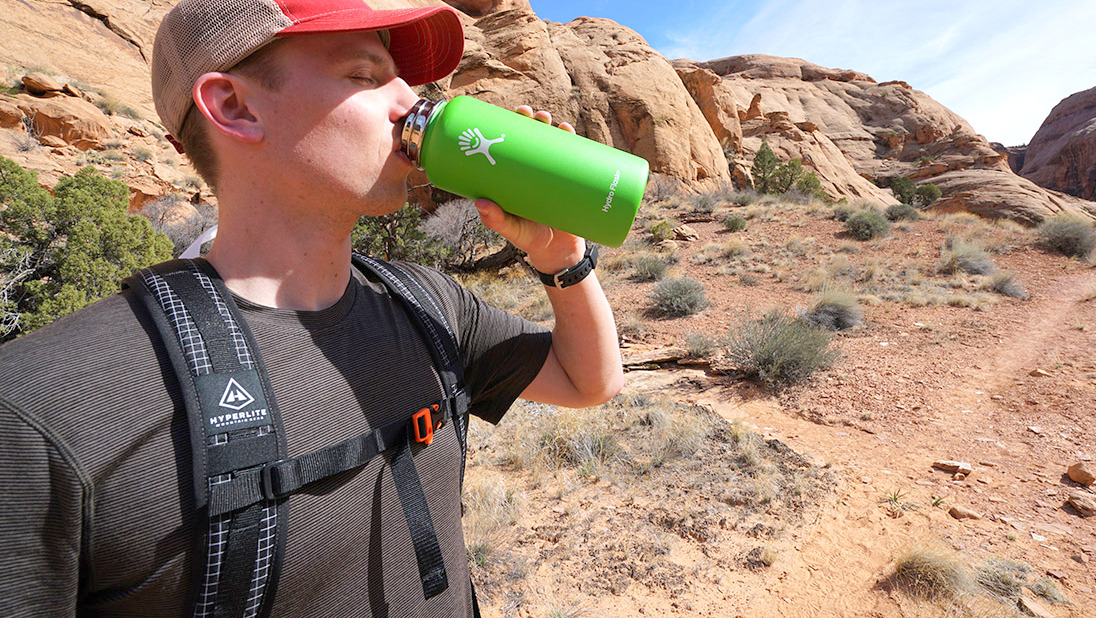
-
Gradual Ascent: The cornerstone of altitude sickness prevention is a gradual ascent. Allow your body to acclimatize by incorporating rest days and avoiding rapid gains in elevation.
-
Hydration Emphasis: Staying hydrated is crucial at high altitudes. Consume ample fluids to combat dehydration, a common contributor to altitude sickness symptoms.
-
Adequate Nutrition: Maintain a well-balanced diet to ensure your body receives the necessary nutrients for energy and stamina. Proper nutrition supports overall health and aids in altitude acclimatization.
-
Avoid Alcohol and Tobacco: Alcohol and tobacco can exacerbate the effects of altitude sickness. Abstain from these substances during the trek to minimize the risk of complications.
-
Medication Consultation: Consult with a healthcare professional about altitude sickness medication. Some individuals may benefit from medications like acetazolamide, which helps in acclimatization.
-
Awareness of Symptoms: Familiarize yourself with the symptoms of altitude sickness, including headaches, nausea, dizziness, and fatigue. Prompt recognition allows for timely intervention.
-
Proper Rest and Sleep: Prioritize adequate rest and quality sleep during the trek. Well-rested bodies are better equipped to handle the physical demands of high-altitude environments.
-
Acclimatization Days: Schedule acclimatization days into your trek itinerary. These rest days at higher elevations allow your body to adjust to reduced oxygen levels gradually.
-
Descend if Necessary: If symptoms persist or worsen, do not hesitate to descend to lower altitudes. Descending is an effective way to alleviate altitude sickness and prevent severe complications.
-
Stay Warm: Cold temperatures can intensify altitude sickness symptoms. Ensure you are adequately dressed in layers to stay warm, especially during chilly nights.
-
Stay Informed: Stay informed about the altitude levels along the trekking route. Knowing when you'll be at higher elevations allows you to plan rest days strategically.
-
Monitor Hydration Urine Color: Monitor your hydration level by observing the color of your urine. Light yellow urine indicates good hydration, while dark yellow may signal dehydration.
-
Avoid Overexertion: Pace yourself and avoid overexertion, especially in the initial days of the trek. Gradual exertion allows your body to adjust without undue stress.
-
Maintain a Positive Mental Attitude: Mental well-being is integral to altitude sickness prevention. Stay positive, be mindful of your body, and communicate any concerns with your trekking team.
By incorporating these altitude sickness prevention strategies into your Everest Base Camp trek preparation, we aim to ensure that you have a safe and fulfilling experience amid the awe-inspiring Himalayan landscapes. Your health and enjoyment are our top priorities as you embark on this remarkable adventure.
EBC Trek Fitness Requirements
Embarking on the Everest Base Camp Trek is an exhilarating endeavor that demands physical preparation to conquer the challenges of the Himalayan terrain. At Luxury Holidays Nepal Pvt. Ltd., we understand the importance of being physically prepared for this iconic trek. Here's a guide to help you meet the fitness requirements for the Everest Base Camp trek:

-
Cardiovascular Endurance: The EBC trek involves long hours of walking, often uphill. Cardiovascular endurance is essential to sustain your energy levels throughout the trek. Engage in activities such as running, cycling, or brisk walking to improve your cardiovascular fitness.
-
Strength Training: Strengthening your leg muscles, core, and upper body is crucial for navigating the varied terrain. Incorporate exercises like squats, lunges, and weight training to build the strength required for trekking at higher altitudes.
-
Hiking Practice: Nothing prepares you better for trekking than actual hiking. Gradually increase the duration and elevation of your hikes, simulating the conditions you'll encounter on the Everest Base Camp trail.
-
Altitude Simulation: While it's challenging to simulate high altitudes in most locations, consider training at higher elevations if possible. This can help your body acclimate to reduced oxygen levels, a key factor in the success of your Everest trek.
-
Interval Training: Mix in interval training to enhance your overall fitness. Short bursts of intense activity followed by periods of rest mimic the varied terrain and pace of the Everest Base Camp trek.
-
Flexibility Exercises: The trek involves navigating through uneven paths and stepping over obstacles. Flexibility exercises, including yoga, can improve your balance and reduce the risk of injuries during the trek.
-
Consistent Training Routine: Consistency is key. Establish a regular training routine well in advance of your trek. This allows your body to adapt gradually and reduces the risk of overexertion or injuries during the trek.
-
Trek-Specific Exercises: Incorporate exercises that mimic the movements involved in trekking. Step-ups, lunges, and uphill treadmill walking can prepare your muscles for the specific demands of the Everest Base Camp trail.
-
Aerobic Conditioning: Develop your aerobic capacity to cope with prolonged physical activity. Activities like swimming, cycling, or cross-training can contribute to improved aerobic conditioning.
-
Consultation with a Fitness Professional: Consider seeking advice from a fitness professional who can tailor a workout routine based on your individual fitness level and health condition. This personalized approach ensures that your training aligns with the specific requirements of the EBC trek.
-
Incremental Training Load: Avoid overexertion by gradually increasing the intensity and duration of your workouts. This incremental approach minimizes the risk of injuries and allows your body to adapt more effectively.
-
Mind-Body Preparation: Mental resilience is as crucial as physical fitness. Incorporate mindfulness practices, such as meditation or focused breathing exercises, to prepare your mind for the challenges and rewards of the Everest Base Camp trek.
By adhering to these EBC trek fitness requirements, you not only enhance your physical capabilities but also increase the likelihood of a successful and enjoyable journey through the Himalayas. Luxury Holidays Nepal is here to guide you on your preparation journey, ensuring you are ready for the adventure that awaits at Everest Base Camp.
Everest Trekking Permit
Embarking on the iconic Everest Base Camp trek requires careful consideration of necessary permits to ensure a smooth and lawful journey through the breathtaking Himalayan landscapes. At Luxury Holidays Nepal Pvt. Ltd., we understand the significance of obtaining the right permits, and we're here to guide you through the essential details regarding Everest trekking permits.
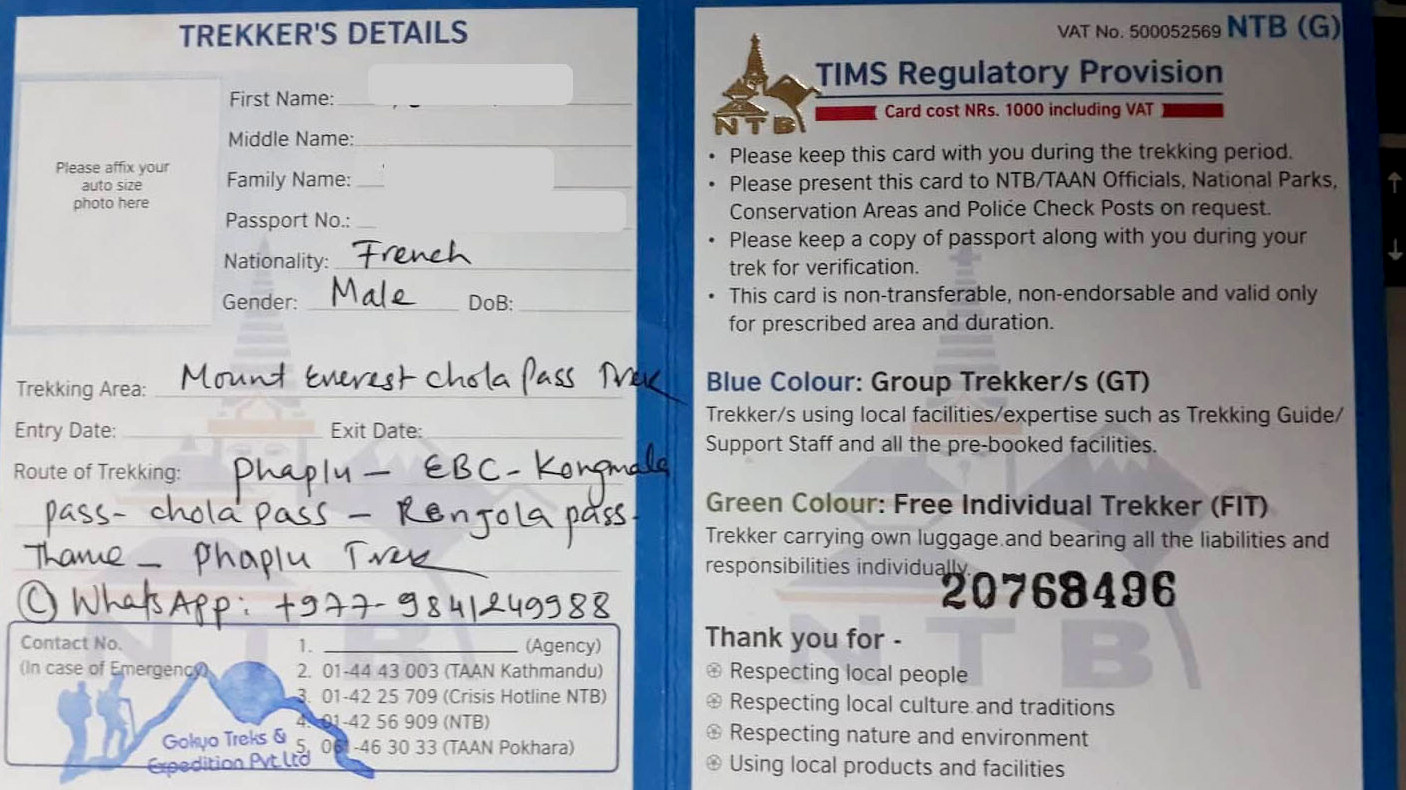
TIMS (Trekkers' Information Management System) Card
-
Sagarmatha National Park Permit: The Sagarmatha National Park, home to Mount Everest, requires a permit for all trekkers. This permit regulates entry into the park and contributes to the conservation of its unique biodiversity. Our team at Luxury Holidays Nepal facilitates the acquisition of this permit, ensuring a hassle-free process for our clients.
-
Khumbu Pasang Lhamu Rural Municipality Entry Permit: In addition to the national park permit, trekkers must obtain the Khumbu Pasang Lhamu Rural Municipality Entry Permit. This permit is essential for traveling through the local municipalities in the Everest region. Our dedicated staff assists in securing this permit, ensuring compliance with local regulations.
-
Permit Application Process: The application process for Everest trekking permits involves submitting the necessary documents, including a valid passport and passport-sized photographs. We streamline this process, guiding trekkers through the required paperwork and minimizing any bureaucratic challenges.
-
Costs and Fees: Trekkers should be aware of the associated costs for Everest trekking permits. The fees contribute to the conservation efforts and local community development. Our transparent approach ensures trekkers are well-informed about the permit costs, helping them budget for their journey effectively.
-
Timely Permit Acquisition: Securing permits well in advance is crucial for a seamless trek. We emphasize the importance of timely permit acquisition to avoid any delays or complications during the trekking journey.
-
Permit Checkpoints: Trekkers are required to present their permits at various checkpoints along the trail. Our guides, well-versed in local regulations, ensure that all necessary documentation is in order, allowing trekkers to focus on the awe-inspiring landscapes rather than bureaucratic processes.
-
Conservation and Sustainable Tourism: Obtaining Everest trekking permits is not only a regulatory requirement but also a commitment to conservation and sustainable tourism. We encourage trekkers to embrace responsible trekking practices, respect the natural environment, and support local communities.
Understanding and obtaining the necessary permits are essential steps in planning a successful Everest Base Camp trek. We go beyond the ordinary, ensuring that your trek is not only adventurous but also compliant with local regulations. Let us guide you through the permit process, allowing you to focus on the transformative journey that awaits you in the majestic Himalayas.
Expert Guidance
Embarking on the Everest Base Camp trek is a thrilling adventure that demands meticulous planning and expert guidance to navigate the challenges of the Himalayas successfully. At Luxury Holidays Nepal Pvt. Ltd., we understand the intricacies of this iconic trek, and our commitment is to provide you with the expert guidance needed for a safe and unforgettable journey. Here's how our seasoned professionals and knowledgeable guides ensure you are well-prepared for the Everest Base Camp trek:
-
Tailored Itineraries: Our expert team crafts carefully curated itineraries that balance trekking, acclimatization, and exploration. These itineraries are designed to optimize your experience, ensuring you make the most of your time in the Himalayas.
-
Altitude Acumen: Navigating high altitudes requires expertise, and our guides are well-versed in altitude-related challenges. They monitor your health, provide timely advice on acclimatization, and are trained to recognize and address symptoms of altitude sickness.
-
Local Insight and Cultural Enrichment: Our guides bring a wealth of local knowledge, providing insights into the rich culture and traditions of the Everest region. Beyond being trail experts, they enhance your journey with cultural immersion, making your trek a holistic and enriching experience.
-
Safety Prioritization: Your safety is our top priority. Our guides are trained in first aid, emergency response, and risk management. They ensure that trekking conditions are safe and that you are well-prepared for the challenges that may arise during the Everest Base Camp trek.
-
Logistical Excellence: Navigating the logistics of the Everest Base Camp trek can be complex. Our expert team takes care of all logistical aspects, including permits, accommodations, and transportation, allowing you to focus solely on the adventure ahead.
-
Personalized Support: Every trekker is unique, and our guides provide personalized support based on your fitness level, preferences, and needs. Whether you're an experienced trekker or a novice, our team ensures you feel supported and confident throughout the journey.
-
Environmental Stewardship: We are committed to responsible and sustainable tourism. Our guides instill a sense of environmental stewardship, encouraging trekkers to minimize their ecological footprint and contribute to the preservation of the Himalayan environment.
-
Continuous Training and Certification: Our guides undergo continuous training and hold relevant certifications. This commitment to professional development ensures that they are well-equipped to handle various situations, contributing to the overall safety and satisfaction of our trekkers.
-
Efficient Communication: Effective communication is vital in the mountains. Our guides provide clear and timely information about trail conditions, weather updates, and any adjustments to the itinerary, ensuring you are well-informed throughout the trek.
-
Community Engagement: Luxury Holidays Nepal believes in giving back to the local communities. Our guides foster positive interactions with locals, creating a respectful and mutually beneficial relationship between trekkers and the Himalayan communities.
By choosing Luxury Holidays Nepal, you are not just embarking on a trek; you are joining an adventure led by experts who are dedicated to ensuring your safety, comfort, and enjoyment. Our team's commitment to excellence transforms the Everest Base Camp trek into a transformative and unforgettable experience in the heart of the world's highest peaks.
Best Time for Everest Base Camp Trek
Selecting the optimal time for your Everest Base Camp trek is crucial for a rewarding and enjoyable experience amid the majestic Himalayan landscapes. At Luxury Holidays Nepal Pvt. Ltd., we guide you through the seasons, helping you choose the best time to embark on this iconic journey. Here's a breakdown of the best time for the Everest Base Camp trek:
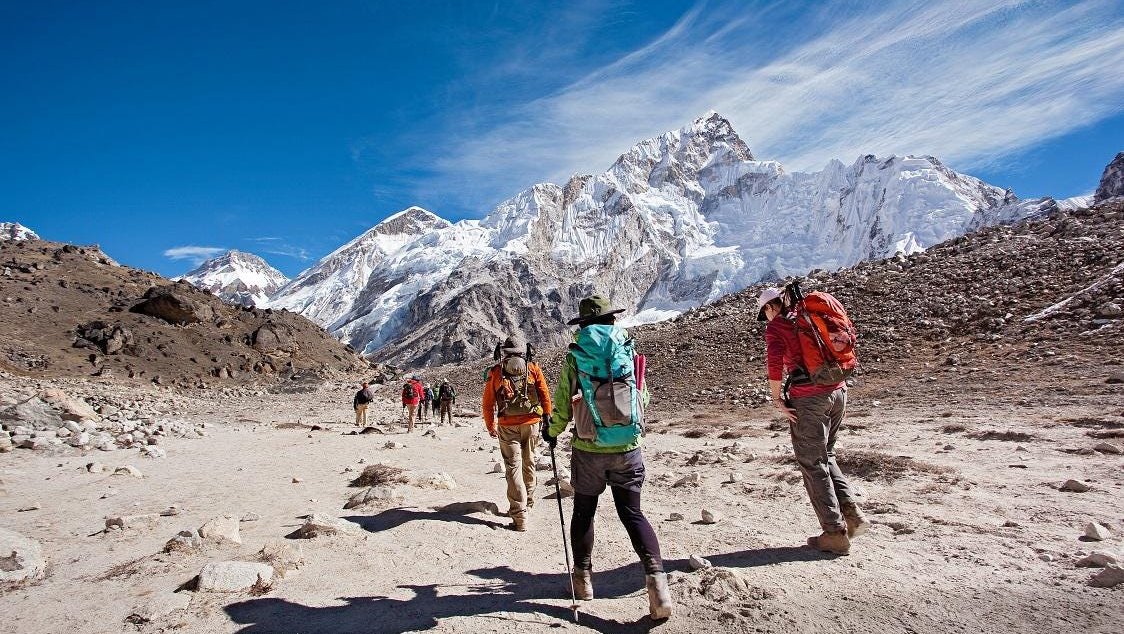
Spring (March to May)
- Flourishing Landscapes: Spring brings vibrant colors to the region with blooming rhododendrons and other wildflowers.
- Moderate Temperatures: Daytime temperatures are mild and comfortable, making it an ideal time for trekking.
- Clear Skies: The skies are generally clear, offering stunning views of the Himalayan peaks.
Autumn (September to November)
- Stable Weather: Autumn is considered the best time for the Everest Base Camp trek, characterized by stable weather conditions.
- Panoramic Views: Crisp and clear days provide panoramic views of the surrounding peaks, making it a photographer's paradise.
- Festive Atmosphere: Experience local festivals and celebrations in the villages along the trail.
Pre-Monsoon (Late May to Early June)
- Warmer Temperatures: As spring transitions into summer, temperatures rise, and the trekking trails become more accessible.
- Greenery: The landscapes are lush and green, creating a picturesque backdrop for your trek.
Post-Monsoon (Late September to Early November)
- Clear Views: Following the monsoon season, the trails are refreshed, and the skies are clear, providing excellent visibility.
- Mild Temperatures: The weather remains mild, and the trails are less crowded compared to peak trekking seasons.
Winter (December to February)
- Snowy Landscapes: Winter transforms the region into a snowy wonderland, offering a unique and serene trekking experience.
- Quieter Trails: While temperatures can be chilly, the trails are less crowded, providing a more peaceful journey.
It's important to note that each season has its unique charm, and the best time for the Everest Base Camp trek depends on personal preferences and priorities. Luxury Holidays Nepal assists you in planning your trek during the optimal season, taking into consideration weather conditions, trail accessibility, and your desired trekking experience.
Comfortable Tea Houses Along the Trail
One of the unique aspects of the Everest Base Camp trek is the network of welcoming tea houses that line the trail, providing trekkers with essential amenities, warm hospitality, and a cozy retreat after a day of exploration. At Luxury Holidays Nepal Pvt. Ltd., we understand the importance of comfortable accommodations during your trek, and we guide you through the experience of staying in these tea houses along the Everest Base Camp trail:
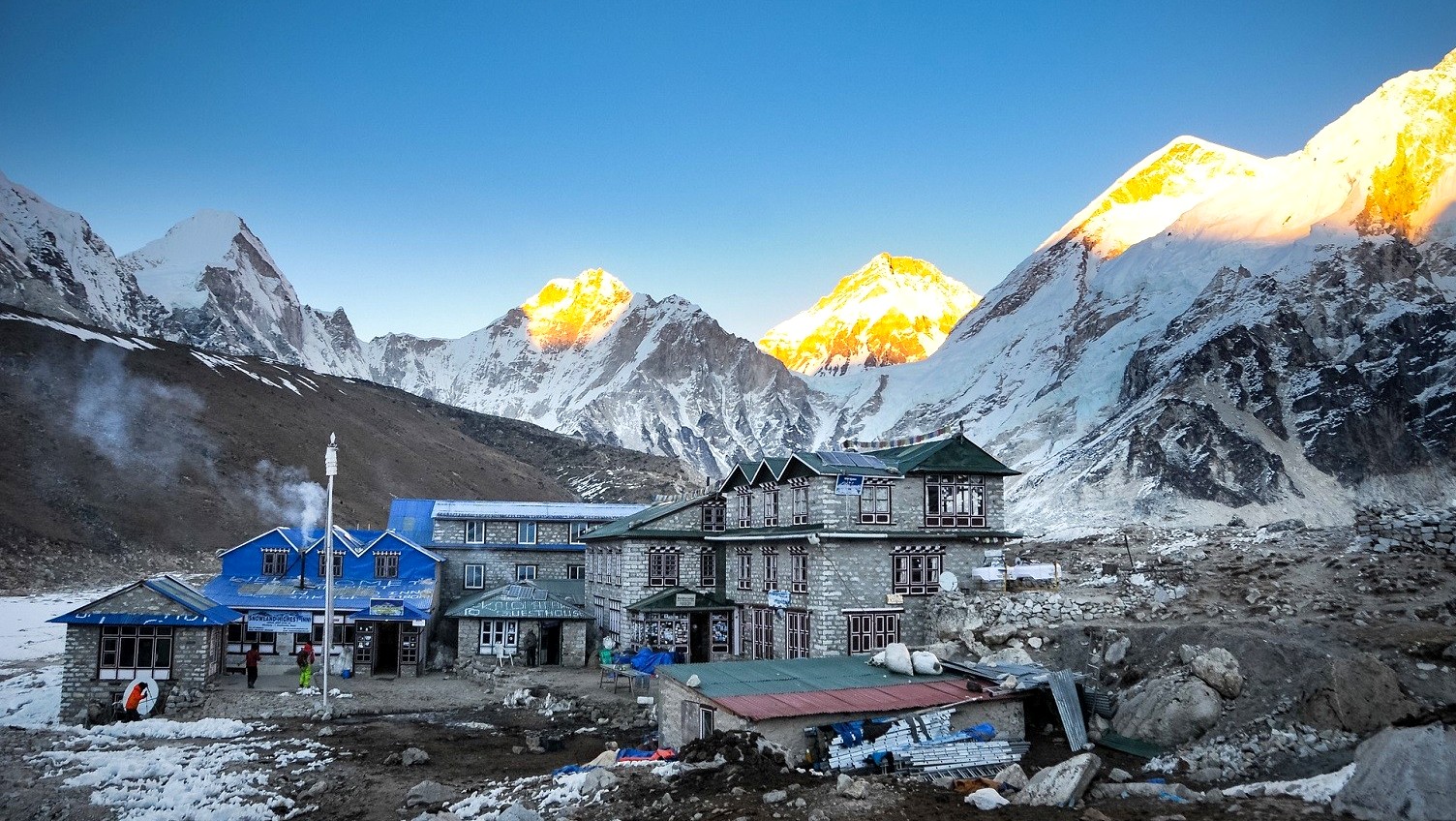
-
Warm Hospitality: Tea house owners and staff in the Everest region are known for their warm hospitality. Trekkers are greeted with friendly smiles and a genuine desire to make their stay enjoyable.
-
Basic Amenities: While facilities may vary, tea houses generally provide basic amenities, including clean bedding, blankets, and shared bathrooms. Some tea houses may also offer attached bathrooms in more developed areas.
-
Local Cuisine: Enjoy authentic Nepali and international cuisine prepared with care. Tea houses often serve hearty meals that cater to trekkers' energy needs, incorporating local flavors and ingredients.
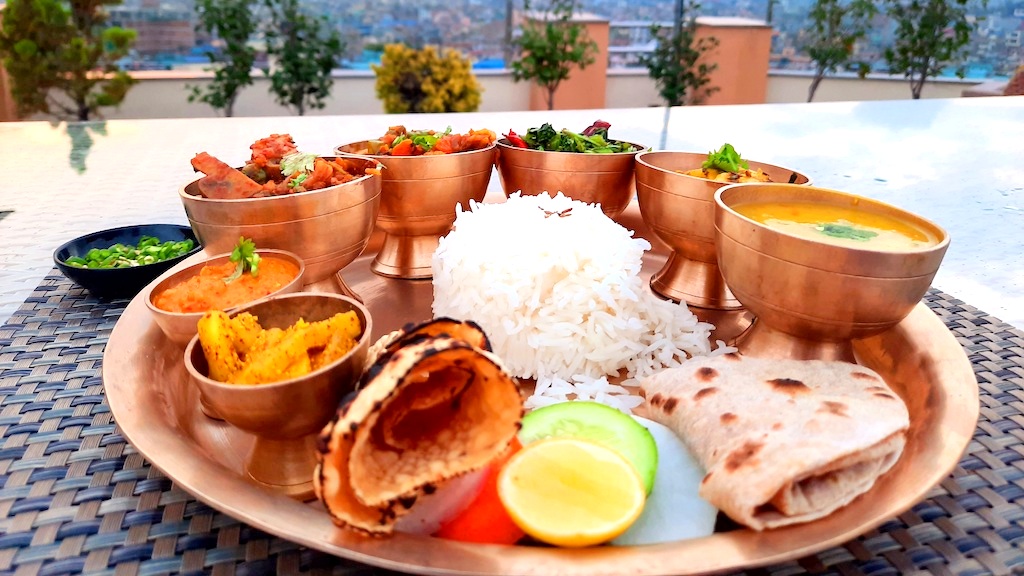
-
Communal Dining Areas: Communal dining areas foster a sense of camaraderie among trekkers. Share stories and experiences with fellow adventurers while enjoying delicious meals in a cozy atmosphere.
-
Stunning Views: Many tea houses are strategically located to offer breathtaking views of the surrounding mountains. Wake up to the sight of towering peaks and savor the tranquility of the Himalayan landscapes.
-
Local Cultural Immersion: Tea houses provide an opportunity for cultural immersion. Engage with locals, learn about their traditions, and gain insights into the Sherpa way of life.
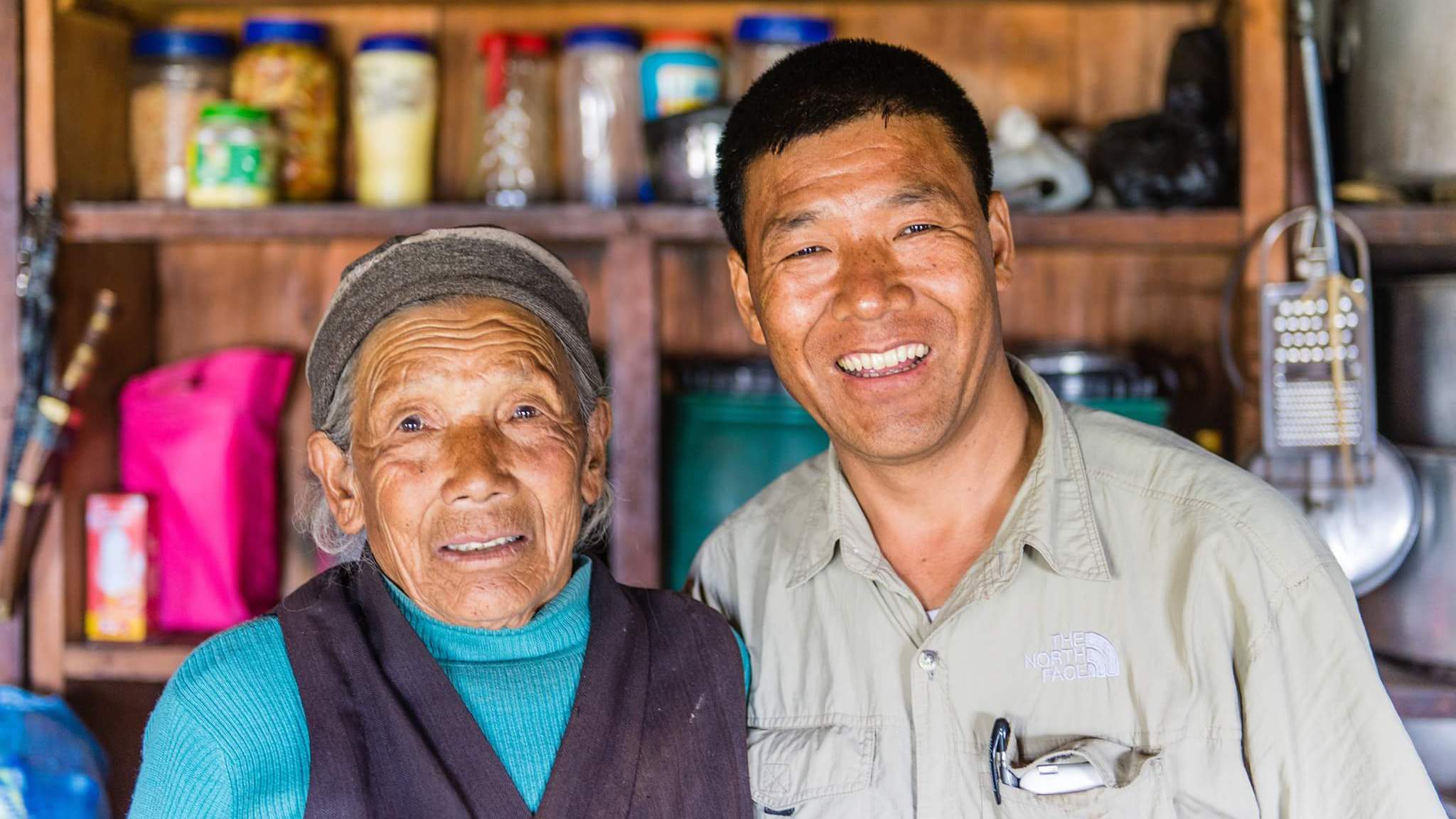
-
Comfortable Beds: Despite the rustic setting, tea houses offer comfortable beds with clean bedding to ensure a good night's sleep. Rest well to recharge for the next day's trekking adventures.
-
Social Spaces: Some tea houses have designated social spaces where trekkers can relax, read a book, or play games. These areas contribute to the communal atmosphere and provide a chance to unwind.
-
Hot Showers: While not all tea houses have hot showers, many provide this essential amenity, especially in more developed areas. A warm shower after a day of trekking is a welcome luxury.
-
Fireplaces and Heating: In colder seasons, some tea houses are equipped with fireplaces or heating systems. Enjoy the warmth of a crackling fire as you share tales of the trail with fellow trekkers.
-
Electricity and Charging Stations: Most tea houses offer charging stations for electronic devices. While the availability of electricity may be limited, it allows trekkers to keep essential devices charged.
Luxury Holidays Nepal ensures that your trek includes stays in comfortable tea houses, enhancing your overall Everest Base Camp experience. From the warmth of the accommodations to the cultural richness embedded in these lodgings, tea houses contribute significantly to the charm and allure of the Himalayan trekking adventure.
Trekking Insurance
Embarking on the Everest Base Camp Trek is an exhilarating adventure, and ensuring you have comprehensive trekking insurance is a crucial aspect of responsible trek preparation. At Luxury Holidays Nepal Pvt. Ltd., we prioritize your safety and well-being. Here's everything you need to know about trekking insurance for your Everest Base Camp journey:
-
High-Altitude Coverage: Choose a trekking insurance policy that specifically covers activities at high altitudes. Verify that the policy includes trekking at elevations above 4,000 meters, as is the case with the Everest Base Camp trail.
-
Medical Evacuation Coverage: Everest's remote terrain necessitates access to medical evacuation services in case of emergencies. Ensure your insurance covers the cost of helicopter evacuations if needed for medical reasons.
-
Emergency Medical Expenses: Comprehensive trekking insurance should cover emergency medical expenses, including hospitalization, doctor's fees, medications, and other necessary medical treatments.
-
Trip Cancellation and Interruption: Unforeseen circumstances may lead to trip cancellations or interruptions. Look for a policy that provides coverage for such situations, allowing you to recover expenses or resume your journey at a later date.
-
Coverage for Acute Mountain Sickness (AMS): Altitude-related illnesses, such as Acute Mountain Sickness, can occur during high-altitude treks. Confirm that your insurance covers medical expenses related to altitude sickness and evacuation if necessary.
-
Lost or Stolen Belongings: Protect your belongings by choosing a policy that covers the loss or theft of personal items, including trekking gear, cameras, and electronic devices.
-
Travel Delays and Missed Connections: Travel in the Himalayas can be unpredictable. Ensure your insurance covers expenses related to delays, missed connections, or additional accommodation costs due to unforeseen circumstances.
-
Search and Rescue Coverage: In the event of an emergency, search and rescue operations may be necessary. Verify that your insurance policy includes coverage for search and rescue expenses.
-
Pre-Existing Conditions: Declare any pre-existing medical conditions when purchasing insurance. Some policies may cover pre-existing conditions, while others may exclude them from coverage.
-
Policy Duration: Confirm that your insurance policy covers the entire duration of your Everest Base Camp trek, including acclimatization days and potential delays due to weather or other factors.
-
Adventure Sports Coverage: Trekking is considered an adventure sport, and not all travel insurance policies automatically cover such activities. Ensure your policy explicitly includes coverage for trekking and related activities.
-
24/7 Emergency Assistance: Opt for insurance that provides 24/7 emergency assistance. This ensures you have access to support and guidance whenever you need it during your trek.
-
Documentation and Contact Information: Carry a copy of your insurance policy, emergency contact numbers, and relevant documentation with you during the trek. Ensure that your guide and trekking team are aware of the insurance details.
We emphasize the importance of trekking insurance and recommend that all trekkers have comprehensive coverage before embarking on the Everest Base Camp Trek. Your safety and peace of mind are our top priorities, and proper insurance ensures you are well-protected throughout your Himalayan adventure.
Packing List for EBC Trek
Packing the right gear and equipment is essential for a successful and comfortable trek to Everest Base Camp. Here is a comprehensive packing list for your reference:
Clothing
- Base layers (synthetic or wool)
- Fleece jacket or down jacket
- Waterproof jacket
- Trekking pants (zip-off or convertible)
- Warm hat and gloves
- Sun hat and sunglasses
- Hiking socks and liners
- Insulated jacket or vest (optional)
- Gaiters (optional)
Footwear
- Hiking boots (waterproof and broken in)
- Trekking sandals or shoes (optional for rest days)
- Extra laces and socks
Backpack
- Daypack (20-30 liters) for day hikes
- Backpack (50-70 liters) for the trek
- Rain cover or waterproof liner
Sleeping
- Sleeping bag (-15C or -20C)
- Sleeping pad or mattress
Trekking Gear
- Trekking poles
- Headlamp or flashlight (with extra batteries)
- Water bottles or hydration system (2 liters)
- Water purification tablets or filter
- Snacks and energy bars
- Duffel bag or waterproof bag (for porters to carry)
Personal Care
- Toiletries (toothbrush, toothpaste, soap, etc.)
- Sunscreen (SPF 30 or higher)
- Lip balm (with SPF)
- First aid kit (with any personal medications)
- Hand sanitizer and wet wipes
- Tissue paper or toilet paper
Other
- Camera and extra batteries or charger
- Travel adapter and voltage converter
- Cash and credit cards
- Passport and necessary documents
It is important to pack light and bring only the essentials. The weight limit for a porter is typically 15-20kg, so make sure to keep your pack within this limit.
Embarking on the awe-inspiring journey to Everest Base Camp requires meticulous preparation and consideration of various factors. We emphasize the significance of comprehensive Everest Base Camp trek preparation to ensure trekkers are well-equipped for the challenges of the Himalayas. From understanding the risks of altitude sickness and the necessity of proper Altitude Sickness Prevention Strategies to meeting the EBC Trek Fitness Requirements, our expert guidance encompasses every aspect of preparation. Securing the required Trekking Permits for Everest Base Camp, hiring a knowledgeable guide, and adhering to a well-curated Packing List for EBC Trek is pivotal for a successful and enjoyable trekking experience. Understanding the Best Time for Everest Base Camp Trek and appreciating the comfort offered by tea houses along the trail adds to the overall expedition. Prioritizing safety with suitable Trekking Insurance further enhances the trek's success. By acknowledging these key aspects, trekkers can immerse themselves in the Himalayan adventure, confident in the expert guidance provided by Luxury Holidays Nepal.
Frequently Asked Questions: Things To Know Before Planning For Everest Base Camp Trek
Q: Why is Everest Base Camp considered a challenging trek?
A: The Everest Base Camp trek is challenging due to its high-altitude terrain, unpredictable weather, and the physical demands of trekking at elevations exceeding 5,000 meters. Altitude sickness is a concern, requiring proper acclimatization and fitness preparation.
Q: How can I prevent altitude sickness during the Everest Base Camp trek?
A: Altitude sickness prevention is crucial. Stay hydrated, acclimatize gradually, and be aware of symptoms like headaches and dizziness. Follow recommended Altitude Sickness Prevention Strategies and consult with guides for expert advice.
Q: What fitness level is required for the Everest Base Camp trek?
A: The EBC Trek Fitness Requirements include good cardiovascular endurance, strength training, and prior hiking experience. Regular aerobic conditioning and trek-specific exercises are essential for a successful trek.
Q: What permits are needed for the Everest Base Camp trek?
A: Trekking permits, including the Sagarmatha National Park Permit and Khumbu Pasang Lhamu Rural Municipality Entry Permit, are mandatory. Acquire these permits through the appropriate authorities to ensure a legal and smooth journey.
Q: What should be included in my packing list for the Everest Base Camp trek?
A: The Packing List for EBC Trek should include essential items such as trekking boots, weather-appropriate clothing, a sleeping bag, trekking poles, a backpack, and necessary personal items.
Q: When is the best time to undertake the Everest Base Camp trek?
A: The Best Time for Everest Base Camp Trek is during the spring (March to May) and autumn (September to November) seasons when weather conditions are stable, and visibility is optimal. These periods offer comfortable temperatures and clear skies.
Q: What are tea houses along the Everest Base Camp trail?
A: Tea houses are local lodges providing accommodations, meals, and basic amenities for trekkers. Understanding the availability of Comfortable Tea Houses Along the Trail is essential for planning overnight stays during the trek.
Q: Is trekking insurance necessary for the Everest Base Camp trek?
A: Yes, trekking insurance is crucial. It should cover high-altitude activities, medical emergencies, evacuation, and trip cancellations. Ensure your policy aligns with the specific requirements of the Everest region.
If you need any further information, please contact us by email: at [email protected], Phone: at +977- 985 100 5129 (WhatsApp)

